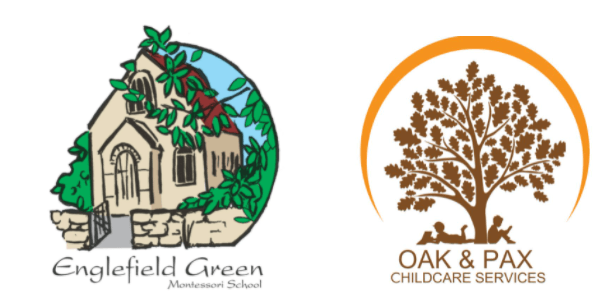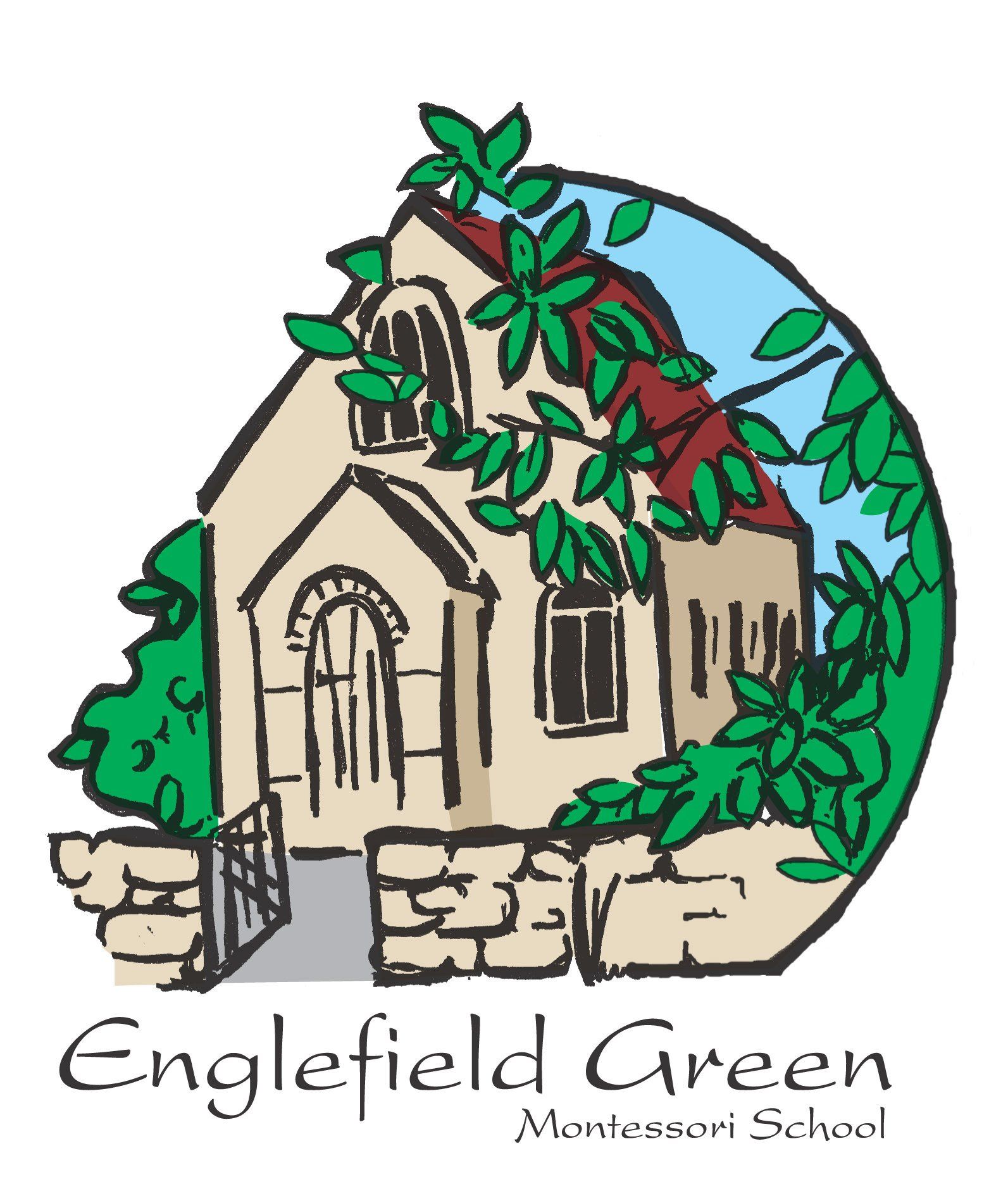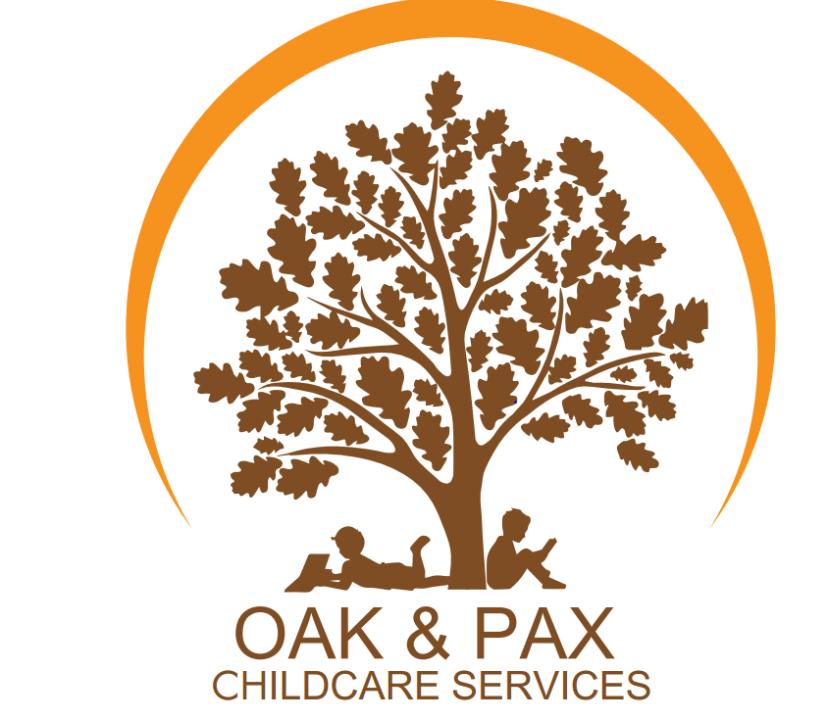+44 (0)1784 472668

Language
Central to a young child's learning ability is their ability to comprehend and communicate thoughts to friends and teachers. Language skills are promoted by stories, poetry and drama. During our daily circle time, children are gently encouraged to contribute to group discussions. Termly projects incorporating History, Geography, Science and Art advocate the use of new and interesting vocabulary. French is also included in our teachings as a foreign language through music, dance, arts and crafts.
Parents and grandparents are encouraged to come in to read to the children or do other activities such as cooking or gardening. Staff are trained in Makaton and use signing whenever possible to enhance the communication for all children.
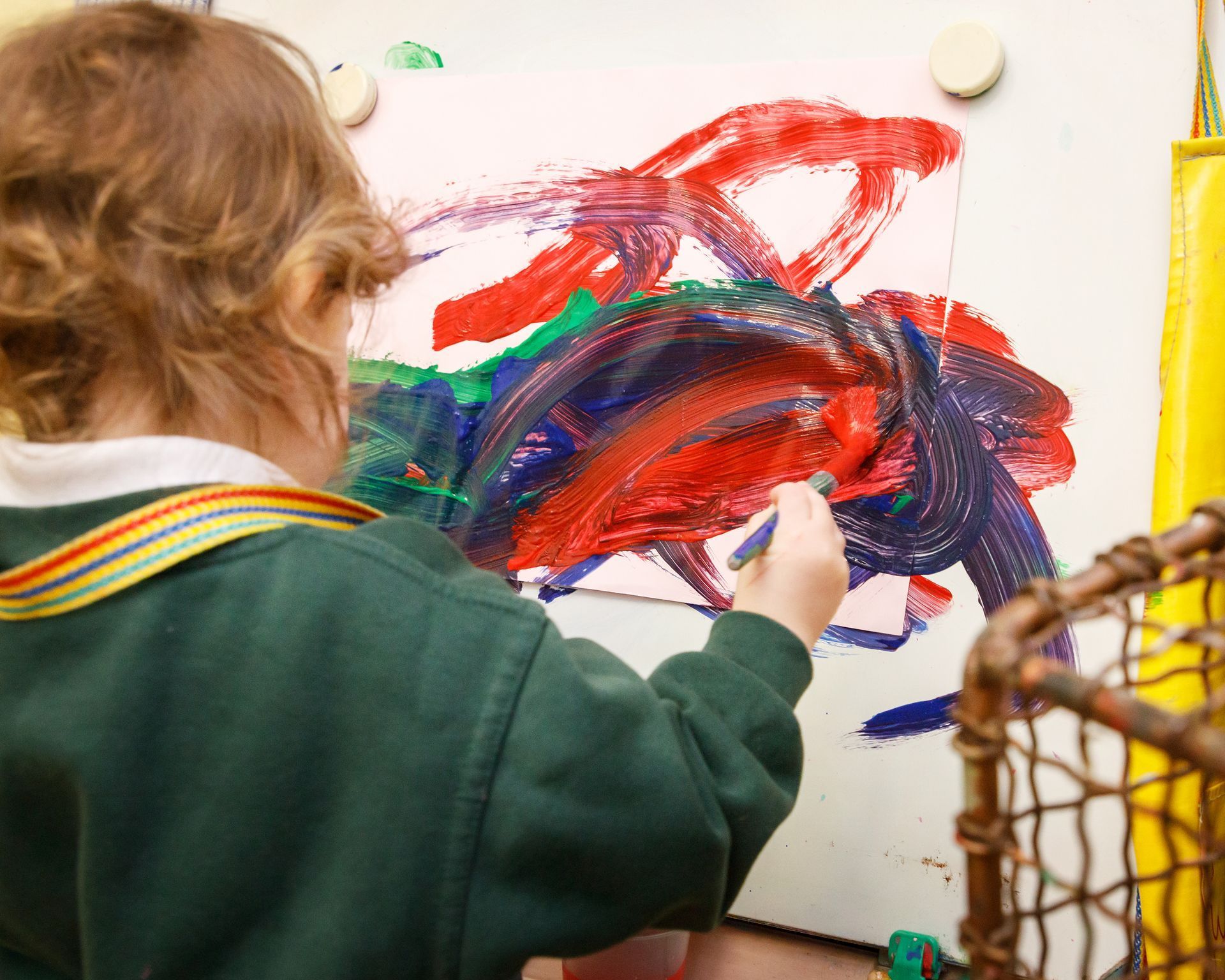
Reading and Writing
When a child is ready, the alphabet is introduced phonetically through the use of sensorial materials. Using sandpaper letters each child quickly distinguishes between the different sounds of each letter. Short words are then introduced which the child pronounces and associates with real life objects. This progresses to the formation of sentences with a simple grammatical structure. Children are taught to use the correct names for equipment and objects around them thereby giving them a broad knowledge and extensive vocabulary. The school holds a wide range of books, and uses videos, if applicable, to bring the written word to life.
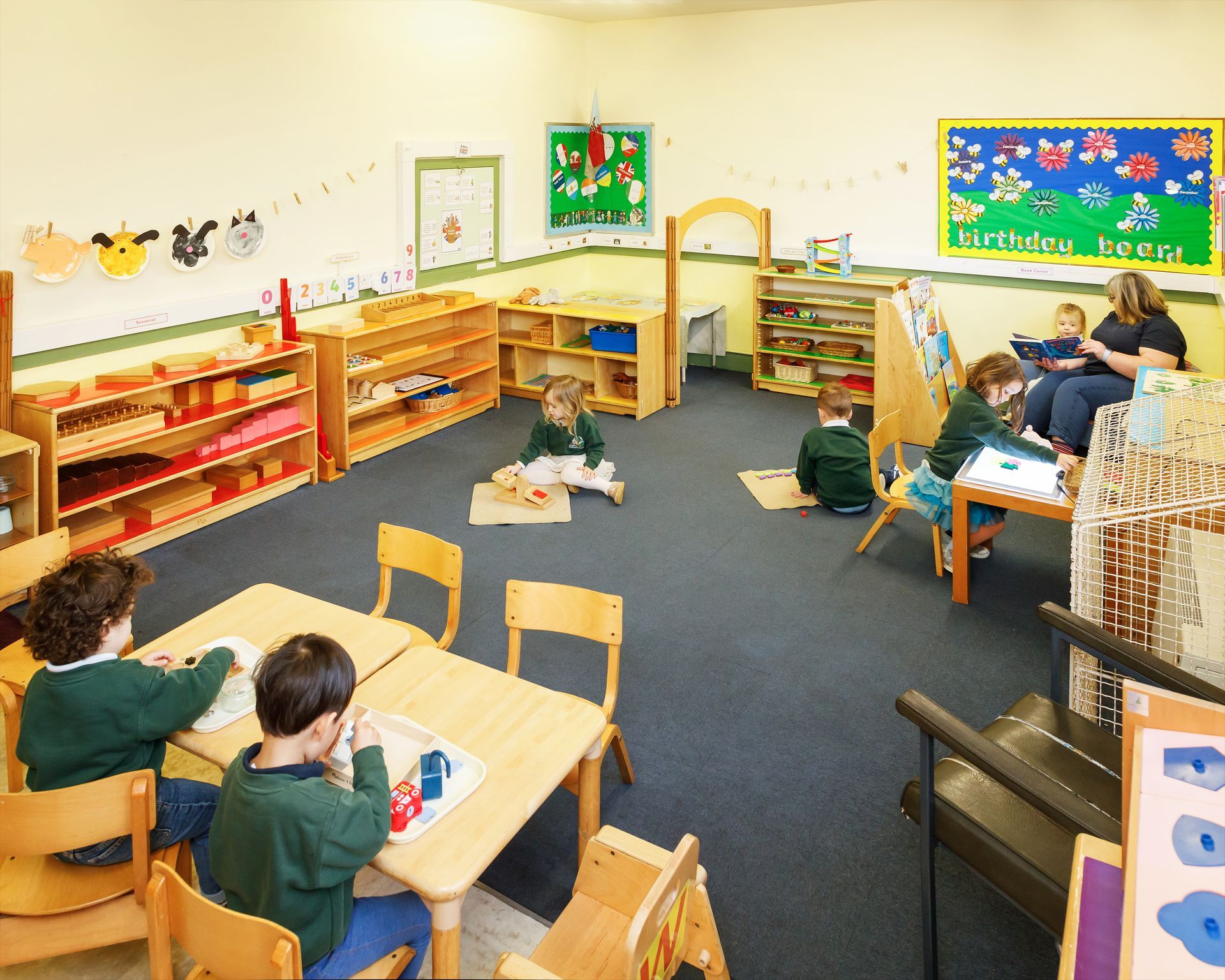
Mathematics
Simple mathematical concepts are initially presented through the use of of practical materials, as this allows the child to conceptualise differences in size and quantities long before written skills are established. As the child advances, the decimal system is taught using both tactile and written materials. This enables more advanced problems to be introduced such as addition, subtraction, multiplication and fractions. As each child becomes more proficient, they are actively encouraged to demonstrate their new found skills to the younger children, further enhancing their understanding.
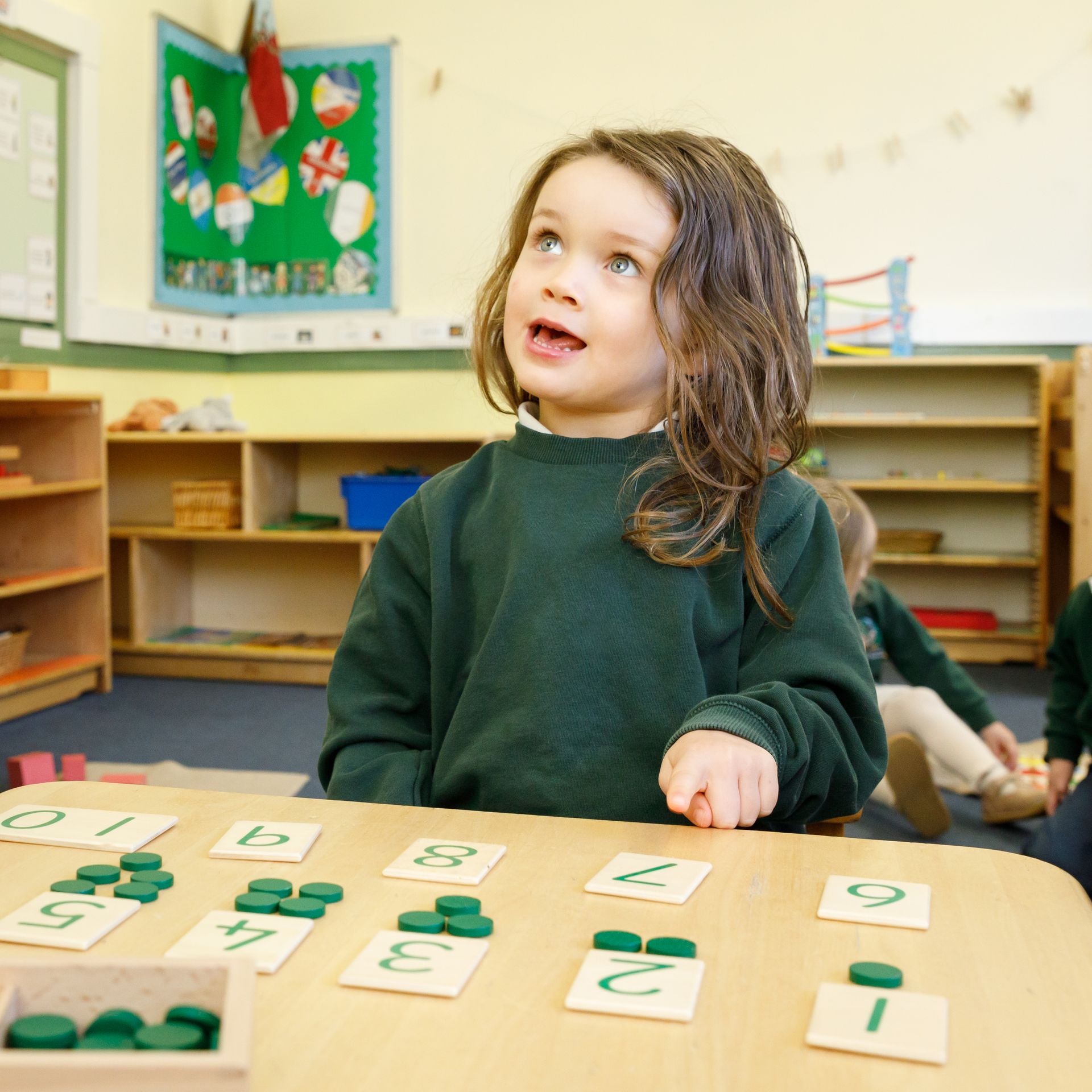
Information Technology
The teachers use Apps on the designated nursery iPads to support vocabulary such as Jolly Phonics
LEARNING ENVIRONMENT
Within the Montessori environment each child develops new skills through the use of practical and sensorial materials. An important aspect of the environment is the freedom of choice that each child has in the use of the equipment, and the time needed to master it. All teaching materials in both classrooms can be readily accessed via specially designed low level cabinets. Like any school there is a carefully structured curriculum but the difference in approach means that each child follows their own unique path with the guidance and encouragement of the teachers around them.
Practical Life Activities
Practical life activities develop co-ordination and motor skills necessary for everyday life. Each task flows naturally to the next level of learning, building confidence and a desire to learn more. For example; exercises are designed specifically to strengthen hand and finger movement required when the first written letters are formed. At the same time practical skills are being discovered, the balanced two hour work cycle encourages each child to enjoy periods of concentration. With the ability to concentrate children become better disciplined and self motivated.
Practical Life Materials
Practical life materials are closely combined with sensorial work which use the senses to develop foundation on which reading, writing and arithmetic and general knowledge can be built. Each child has the opportunity to appreciate the sound, feel and smell of carefully differentiated objects, gaining an awareness of size, form and weight. These early experiences help each child to categorise items around them, understanding the way in which things are ordered, and how they are represented by words and numbers. Like the practical life materials, the sensorial equipment is carefully graded according to ability. Once a task is mastered the teacher presents more material on which the child can focus its mind.
At all times children are encouraged to interact, demonstrating new skills to each other and forming important friendships with other class members. Each work session is concluded with a period of playtime where children can relax and have fun with their friends.
Our Location
Englefield Green Montessori School,
The Bishopsgate Evangelical Church,
Kings Lane,
Englefield Green,
Surrey TW20
0UE
All Rights Reserved | Englefield Green Montessori School | School Safeguarding Policy
